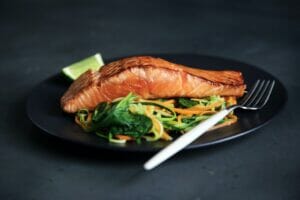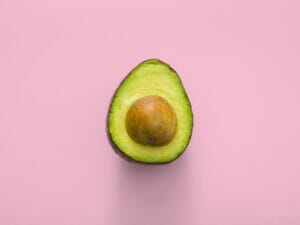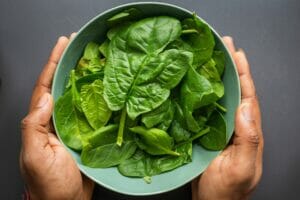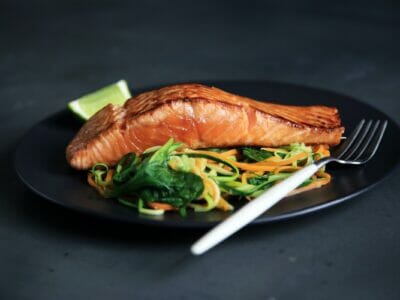Natural Sources Rich in Vitamin B
Hey there, fellow food enthusiasts! Are you ready to embark on an epic culinary quest in search of vitamin B? Sit tight and buckle up, because this gastronomic journey is going to be a wild ride!
Animal-Based Sources of Vitamin B
First stop, the bustling metropolis of the Animal Kingdom. It’s a treasure trove teeming with tantalizing treats, bursting with vitamin B. Picture yourself biting into a juicy steak, a symphony of flavors dancing on your tongue, all the while you’re beefing up on essential vitamins like B2, B3, and B12.
But wait, there’s more! You’re not just limited to land dwellers.
Take a deep dive into the briny deep and feast on seafood delicacies.
Have a taste of succulent salmon and not only will you be surfing a wave of deliciousness but also raking in oodles of vitamin B12.
When it comes to animal-based sources of Vitamin B, these creatures are like the superheroes of the nutrient world:
- Organ Meats: Now, I know what you’re thinking, “Organ meats? Are you pulling my leg?” But hold your horses! Liver, kidneys, and other organ meats may sound unconventional, but they’re like a secret stash of Vitamin B goodness, packing B12 and other essential B vitamins. They may not be everyone’s cup of tea, but for those with an adventurous palate, they’re a hidden gem!
- Salmon: Ah, the mighty salmon, gracefully navigating the waters and generously providing us with a bounty of Vitamin B12. It’s like the king of fish, ruling the realm of B vitamins. So next time you savor a succulent piece of salmon, remember, it’s not just a treat for your taste buds; it’s a nutrient-rich delight!
Now that we’ve explored the animal-based sources, let’s set sail for the plant-based wonders that’ll make your taste buds sing with joy. Hang on tight, adventurers, because we’re about to discover some truly extraordinary options!
Plant-Based Sources of Vitamin B (Vegetarioan & Vegan)
Now, let’s turn our attention to the plant-based powerhouses that pack a punch when it comes to Vitamin B. These green and glorious goodies are a treasure trove of nutrition, so let’s dig right in!
- Leafy Greens: Oh, the verdant allure of leafy greens! Spinach, kale, and collard greens are like the superheroes of the vegetable world, brimming with B vitamins, particularly B9, also known as folate. Popeye knew what he was doing when he gobbled up that spinach!
- Legumes: These little gems of nutrition are the real deal. Lentils, chickpeas, and black beans are like the knights in shining armor for plant-based Vitamin B. They bring the heat with a potent blend of B vitamins, including B1, B2, B3, and B6. Talk about legume power!
- Nuts and Seeds: Don’t let their small size fool you – nuts and seeds are like tiny nutrient-packed nuggets. When it comes to Vitamin B, think sunflower seeds and flaxseeds. They’re brimming with B vitamins, including B1, B5, and B6. Sprinkle them on salads or grab a handful as a snack to give your body a little boost.
- Whole Grains: Let’s give a round of applause to whole grains! They not only fill your belly but also bring the B vitamin party to the table. Think brown rice, quinoa, and whole wheat bread. They’re bursting with B vitamins, like B1, B3, and B6. So, go ahead and swap out that refined white rice for its hearty whole grain cousin.
Remember, variety is the spice of life, so don’t be afraid to mix and match these plant-based sources of Vitamin B. Your taste buds will thank you, and your body will too!
Importance of a Balanced Diet for Meeting Vitamin B Needs
Let’s talk about the importance of a balanced diet when it comes to meeting your Vitamin B needs. It’s like laying a strong foundation for a nutrient-packed fortress that’ll keep you feeling like a million bucks! So, buckle up and let’s dive into the world of wholesome nutrition!
Incorporating a Variety of Foods in Your Diet
Variety is the spice of life, and when it comes to getting your daily dose of Vitamin B, it’s like a symphony of flavors and nutrients. Here’s how you can rock your taste buds while meeting your Vitamin B needs:
- Mix it Up: Don’t get stuck in a rut, my friends! Explore a rainbow of fruits and vegetables, like berries, citrus fruits, and leafy greens. Each of these vibrant beauties brings its own B vitamin goodness to the table.
- Go with the Grains: Whole grains like quinoa, brown rice, and oats are like the trusty sidekicks on your Vitamin B journey. They’re packed with B vitamins, fiber, and other essential nutrients. Swap out refined grains for these wholesome options and let your taste buds dance!
Understanding and Overcoming Common Nutritional Gaps
We’re all human, and sometimes we stumble upon nutritional gaps in our diets.
But fear not! With a little knowledge and some strategic planning, you can overcome those gaps like a champion.
Here’s how to conquer those common nutritional hurdles:
- Know Your Nutrient Needs: Understanding the specific B vitamins your body requires is like having a treasure map to success. Know which foods are rich in the B vitamins you need the most and make them your nutrient allies.
- Seek Expert Guidance: Sometimes, you might need a helping hand to navigate the tricky waters of nutritional needs. Don’t hesitate to consult with a registered dietitian or nutritionist who can provide personalized guidance based on your unique requirements.
Remember, my friends, a balanced diet is like a secret weapon against nutrient deficiencies. So embrace the power of variety, arm yourself with knowledge, and conquer those nutritional gaps like the champion you are!
Foods High in Vitamin B: Detailed Analysis by Type
When it comes to foods that are high in Vitamin B, we’ve got ourselves a smorgasbord of delicious options.
Let’s take a deep dive and explore the different types of foods that will give you a nutrient boost like no other. Get ready to tantalize your taste buds and fuel your body with these Vitamin B powerhouses!
Fish and Meats High in Vitamin B
Fish and meats are like the superheroes of the Vitamin B world.
They pack a punch when it comes to this essential nutrient.
So, let’s reel in the details and fire up that grill:
- Salmon: Ah, the majestic salmon! It’s not just a feast for the eyes; it’s a treasure trove of Vitamin B12. This fishy delight will not only satisfy your taste buds but also give you a hefty dose of this essential nutrient.
- Beef Liver: Now, I know what you’re thinking – liver? But hear me out! This organ meat might not be everyone’s cup of tea, but it’s like a vitamin B bomb waiting to explode. Beef liver is particularly rich in B12, B6, and B2.
Grains, Nuts, and Seeds High in Vitamin B
Grains, nuts, and seeds are like the unsung heroes of the Vitamin B realm. They may be small in size, but they bring a big nutritional punch. Let’s crack open the details:
- Quinoa: This ancient grain is like a powerhouse of nutrition. It’s not just a trendy superfood; it’s a fantastic source of B vitamins, including B1, B2, B3, and B6. Talk about a grain that knows how to deliver!
- Sunflower Seeds: These tiny, mighty seeds are like the rock stars of Vitamin B. Packed with B1, B3, B6, and more, they’re the perfect snack to keep your energy levels soaring.
Vegetables and Fruits High in Vitamin B
Who said vegetables and fruits couldn’t bring their A-game when it comes to Vitamin B? They may be colorful and vibrant, but they’re also a goldmine of this essential nutrient. Let’s savor the details:
- Spinach: Popeye knew what he was doing when he downed that spinach! This leafy green is like the champion of B vitamins, particularly B9, also known as folate. It’s a nutrient powerhouse that deserves a permanent spot on your plate.
- Avocado: It’s not just a trendy toast topping; it’s a Vitamin B hero! Avocado is rich in B vitamins, including B5, B6, and B9. So go ahead and whip up that guacamole, my friends.
So there you have it, a detailed analysis of foods high in Vitamin B. Whether you’re a fan of fish, meats, grains, nuts, seeds, or veggies and fruits, there’s a wide array of options to fuel your body and keep you feeling like a rockstar. Embrace the variety and enjoy the nourishment!
Fortified Foods: An Essential Part of a Balanced Diet
When it comes to maintaining a balanced diet and meeting your Vitamin B needs, fortified foods are like the unsung heroes that swoop in to save the day. These fortified goodies are like a secret weapon in the battle against nutritional deficiencies. So, let’s uncover the role of fortified foods and learn how to choose the healthiest options. Get ready to fortify your knowledge!
Role of Fortified Foods in Meeting Vitamin B Needs
Fortified foods are like the superheroes of the nutrition world, stepping up to bridge the gap when it comes to meeting our Vitamin B needs. They’re like a safety net, ensuring that we get our dose of these essential nutrients. So, let’s unravel their role:
- Boosting Nutrient Content: Fortified foods are like the nutrient ninjas, stealthily adding extra vitamins and minerals to our diets. When it comes to Vitamin B, they’re often fortified with B vitamins like B12, B6, and folic acid. These added nutrients can help prevent deficiencies and promote overall health.
- Catering to Specific Dietary Needs: Fortified foods are like a lifeline for those with dietary restrictions or limitations. Whether you’re following a vegetarian or vegan diet, or you have certain food allergies, fortified foods can provide a convenient and reliable source of Vitamin B to meet your specific needs.
How to Choose Healthily Fortified Foods
Now that we understand the importance of fortified foods, let’s master the art of selecting the healthiest options. Here’s a quick guide to help you make informed choices:
- Read the Labels: Take a moment to be the Sherlock Holmes of the supermarket aisle. Read the labels and look for keywords like “fortified” or “enriched.” This indicates that the product has been intentionally fortified with additional nutrients, including Vitamin B.
- Check the Nutrient Content: Not all fortified foods are created equal, my friends. Look for products that provide a substantial amount of the desired Vitamin B you’re seeking. Compare different brands and opt for those with higher vitamin content.
- Seek Whole Food Sources: While fortified foods can be helpful, it’s always best to prioritize whole food sources of Vitamin B whenever possible. Incorporate a variety of natural foods like meat, fish, leafy greens, and whole grains into your diet to complement your fortified choices.
Remember, fortified foods are like the sidekicks that support a well-rounded diet. They’re not meant to replace natural sources of Vitamin B but can play a valuable role in meeting your nutritional needs. So, be a savvy shopper, choose wisely, and let fortified foods become your partners in maintaining a balanced and nourishing diet!
Conclusion: Strategies for Maintaining Vitamin B Foods in Your Diet
In conclusion, my friends, it’s time to buckle up and take charge of your Vitamin B game plan. Maintaining optimal levels of these essential nutrients is like keeping the engine of your body revved up and ready to go. So, let’s dive in and explore some key strategies to ensure you’re fueling yourself with the goodness of Vitamin B. Ready? Let’s roll!
First things first, make sure to include a variety of natural food sources that are rich in Vitamin B as the backbone of your diet. These foods are like the superheroes that deliver the B vitamin punch you need. Whether it’s enjoying dairy products for their vitamin B2 and B7 content, or indulging in whole grains like cereal for their high B complex vitamin levels, these healthy foods are your ticket to success. So, let your taste buds dance with joy as you savor the best sources of Vitamin B and make them an integral part of your daily meals.
Now, let’s talk about vegans and vegetarians. We know you’ve got your own unique challenges when it comes to getting enough Vitamin B, but fear not! There are plenty of options for you too. Incorporate plant-based powerhouses like nutritional yeast into your diet for a boost of vitamin B12. And don’t forget the legumes! These little gems, like lentils and beans, are not only a great source of vitamin B9 but also provide a healthy dose of other B vitamins. So, vegans and vegetarians, rejoice! There’s a world of plant-based Vitamin B options waiting for you.
Remember, my friends, getting enough Vitamin B is like giving your body the fuel it needs to thrive. So, eat foods rich in B vitamins, embrace a variety of sources, and let the power of these essential nutrients unlock your full potential. It’s time to nourish yourself from within and shine like the stars you are!
FAQs
What are some foods that are high in Vitamin B?
Many foods are high in B vitamins, such as red meat, poultry, fish, dairy products, leafy greens, and whole grains.
How can I ensure I’m getting enough B vitamins in my diet?
To ensure you’re getting enough B vitamins, incorporate a variety of foods high in B vitamins, like leafy greens, legumes, fortified cereals, and animal-based sources. It’s also important to include a source of vitamin B12, especially for those following a vegetarian or vegan diet.
Do B vitamins play a role in red blood cell health?
Yes, B vitamins, including vitamin B6, thiamine, and folate, play a crucial role in red blood cell production and maintenance. They contribute to the synthesis of DNA and the formation of healthy red blood cells.
What are some excellent sources of vitamin B12?
Animal-based sources like fish, meat, poultry, and dairy products are excellent sources of vitamin B12. For those following a vegetarian or vegan diet, fortified foods like cereals and nutritional yeast can provide the necessary vitamin B12 intake.
How can I incorporate more B vitamins into my diet?
To incorporate more B vitamins into your diet, focus on consuming a variety of foods that are high in B vitamins. This includes incorporating leafy greens, whole grains, legumes, and fortified foods into your meals. Additionally, including animal-based sources if you’re not following a vegetarian or vegan diet can also help meet your B vitamin needs.
Are unprocessed foods better sources of B vitamins?
Yes, unprocessed foods are generally better sources of B vitamins compared to heavily processed ones. Food processing can sometimes lead to a loss of natural B vitamin content, so opting for unprocessed or minimally processed foods ensures you retain more of these essential nutrients.
Can fortified foods be a good source of B vitamins?
Absolutely! Fortified foods, such as cereals, nutritional yeast, and plant-based milk alternatives, can be great sources of B vitamins, including vitamin B12. They are specifically fortified to provide additional B vitamins and can be beneficial, especially for those with dietary restrictions or limited access to other food sources containing B vitamins.




 The Link Between Vitamin B , Digestive Health, Gut and Human Health
The Link Between Vitamin B , Digestive Health, Gut and Human Health
